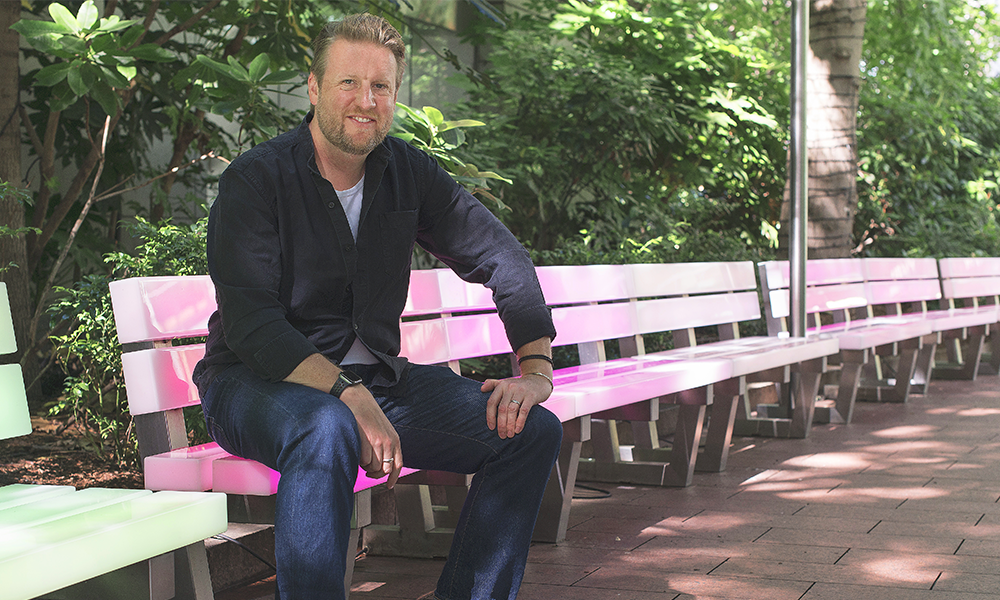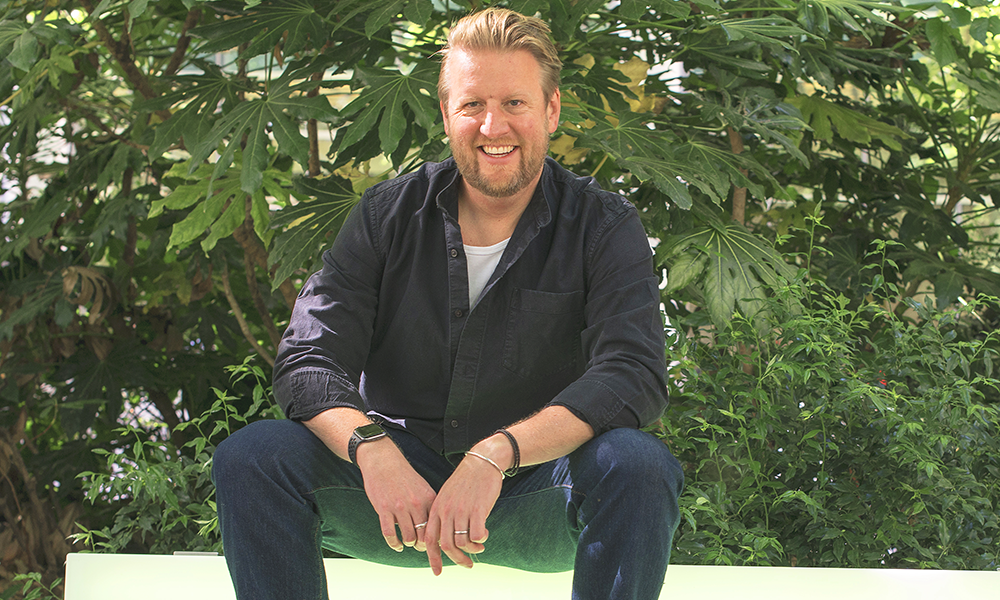Headquarters of government-owned genome sequencing business set to arrive in Canary Wharf in the autumn

Subscribe to Wharf Life’s weekly newsletter here
Right, so this headline is a bit disingenuous. Genomics England doesn’t, in the course of its operations, alter anyone’s DNA.
In fact, it captures whole human genomes, sequences them and uses the data for both personal NHS diagnoses and wider research.
However, its arrival in Canary Wharf is part of a bigger picture as the estate continues to grow and diversify.
Tropes about steel towers full of bankers are outdated, lazy stereotypes that nevertheless persist.
But perception often lags reality, which in turn can lag big announcements.
Earlier this year, Canary Wharf Group unveiled a project with Kadans Science Partner to create a 750,000sq ft, 22-storey, wet lab-enabled building in the first phase of its development of the North Quay site next to West India Quay DLR.
The scheme is at the forefront of the estate’s emerging vision to bring more health and life sciences businesses and organisations to the area – creating a cluster to rival those in Oxford and Cambridge.
However, the building is not set to be delivered until 2026 – these things take time.
Much quicker in the timeline, will be the arrival of Genomics England.
Announced last month, the government-owned business is expected to take up residence on the 21st floor of One Canada Square in the autumn.
The Wharf is already home to Barts Health NHS Trust, the Medicines And Heathcare Products Regulatory Authority, Medical Defence Union, General Pharmaceutical Council, NHS Transformation Unit and NHS Digital’s London office.
The addition of Genomics England adds further weight to that group, making east London an increasingly attractive destination for those operating in the sector.
“If you look around us, we’ve got an incredibly rich health and life sciences community in Canary Wharf,” said Chris Wigley, CEO of Genomics England.
“When we were thinking about where we wanted to be, somewhere with those kinds of organisation, that vision, where we can bring people together easily was really exciting.
“It’s also very close to Whitechapel, where the Royal London Hospital is, and to many universities.
“We have all the ingredients here to do something special.
“What we saw during the pandemic was that, when our whole system pulls together, we can really lead the world in pathogen sequencing, genome sequencing and clinical trials, and we want to keep that sense of collaboration.
“Of course, very pragmatically, as a government-owned company, value for money is something we have to be pretty serious about too.”

Genomics England was originally set up by the Department Of Health And Social Care to run the 100,000 Genomes Project, following an announcement by then prime minister David Cameron at the 2012 Olympics.
“That was only about a decade after the first whole human genome had been sequenced, which took millions of dollars and thousands of scientists,” said Chris.
“You used to have to sequence DNA base pair by base pair, and there are something like 3.2trillion of them so it took a very long time.
“With the various changes that have collectively been made around next-generation sequencing, you can now do the sequencing in under an hour – although for a clinical case where we have an actual patient, we’d do that 30 times because even if the process is 99.999% accurate, when there are 3.2trillion results you need to be able to spot those errors.
“With DNA the numbers are huge, but if we do it 30 times we can be confident we’ve picked up any inconsistencies.”
Having sequenced 100,000 genomes by 2018, Genomics England is now engaged in two main areas of operation.
Chris said: “The first big thing we do is that we partner with the NHS to use whole genome sequencing to diagnose and make good decisions about patient treatment.
“This is the first health service on the planet to offer this, so that’s a genuine world first for Britain, which is great.
“Those insights are most relevant if you’ve got cancer or rare diseases, because those are things that we know are principally driven by changes in your genome.
“If you’re looking at the DNA, you can spot all of these areas where each of us is individually different from each other.
“So we’ve now got a catalogue where you can look up those changes, so we can see that if you’ve got them in your DNA, you may have a rare disease or a particular aspect of a cancer, for example, which we can then do something about.
“The second big thing is that we can anonymise all the data, put it in a separate environment and make it available to researchers from academia, from pharmaceutical companies and from biotech firms.
“It is still very sensitive data, though, so we have this model where the researcher has to come into our environment to look at it.
“We sometimes talk about being an aquarium, not a fish shop, where people can come in, study what we have, admire the fish and go away again.
“Crucially, they can’t take the fish with them – that’s how we protect the data.”

Chris knows all about protecting data. With a background as a business analyst and diplomat, his CV includes the role of chief operating officer at tech startup Quantum Black – a machine learning and AI company.
“I often use the word career as a verb rather than a noun,” he said. “I’ve done a number of things.
“I had a small scale startup in web design mostly putting tartan on Scottish companies’ sites.
“I spent time at the BBC doing analog to digital transitions and setting up their radio player and iPlayer.
“Quantum Black was originally building applications to solve complex problems for a range of clients including in Formula 1 to help the cars win more races and then taking that approach to aerospace, offshore wind and other advanced engineering firms.
“Then we realised that the same techniques could be applied to banking or to life sciences. So we ended up with a third of our work for pharmaceutical companies, on drug discovery and clinical trials.
“It was lots of big data sets and complex models and then taking the outputs from them and explaining them in a way that humans could do something with.”
Having accepted the job at Genomics England just under three years ago, he’s now presiding over a period of growth and change.
“Throughout the pandemic we did a huge amount of research on Covid, working with the NHS, Health Education England and others, on how understanding our DNA might help us to understand Covid better,” said Chris.
“We’ve kicked off a bunch of other new programmes as well, so we’ve grown a lot in terms of numbers – we’re now about 500, and we have a space in the Sanger Centre in Hinxton – we’ve just opened another office in Leeds as well.
“We may also open a fourth location, but broadly we’re now thinking of ourselves as a national network of people across the whole of England.
“The base here in Canary Wharf will be the nerve centre.
“The way we’ve thought about the space here is less about banks of desks and terminals and more about collaborative space, community space, social space, and also library space for people coming in to do deep work.
“For a lot of our people it’s a new part of town with new things to explore.
“I think a lot of people have a vision of Canary Wharf from the early 2000s – but as we’ve brought more people over here, they can see it’s really changed.”
The move is also preparation for the increasingly central role that our understanding of DNA will play in our healthcare as time moves on.
“We’re gradually learning more and more about how our DNA affects our health,” said Chris.
“The first wave of discoveries was in the 1950s, 1960s and 1970s, – rare diseases caused by a single change in your DNA such as sickle cell anaemia, for example.
“We now understand that cancer is really a disease of the genome, where unregulated growth of DNA causes cell growth that we we call tumours. That helps us to treat it.
“Then, as new techniques have come in, like machine learning, we can start to understand more complex relationships between what’s happening in our bodies and what’s happening in our DNA.
“For example, a combination of 75 changes, when combined with external stimulus such as smoking or not smoking could explain why a certain disease occurs.
“We’re getting more and more into areas like infectious diseases and understanding how DNA, makes RNA, which makes proteins that do everything in our bodies, and how that causal chain has certain outcomes that we can understand.
“Then, hopefully, we can intervene when necessary.
“We’re just in the process of launching a programme at the moment that we’ve been working on for a number of years, where we’ll be offering to sequence the whole genome of new-born babies to look for about 250 different things.
“That’s in addition to the current heel prick test that looks for about nine. If there is something that is early onset and treatable then the NHS can immediately address that so the patient will get the best outcome.
“Of course, we think a lot about the ethics of what we do.
“Our fundamental belief is that we shouldn’t be making decisions about people’s care – the people whose data it is and whose lives it is should be doing that.
“Our job is to be completely transparent, to help people understand what we’re doing so they can make the right choices for them.”
Read more: Discover Liberty Festival in Deptford
Read Wharf Life’s e-edition here
Subscribe to Wharf Life’s weekly newsletter here
- Jon Massey is co-founder and editorial director of Wharf Life and writes about a wide range of subjects in Canary Wharf, Docklands and east London - contact via jon.massey@wharf-life.com




2 Replies to “Canary Wharf: Why Genomics England is relocating to One Canada Square”
Comments are closed.